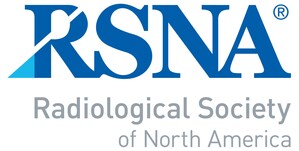News from the 97th Scientific Assembly and Annual Meeting of the Radiological Society of North America (RSNA) in Chicago
CHICAGO, Nov. 29, 2011 /PRNewswire-USNewswire/ --
Growth Hormone Increases Bone Formation in Obese Women
A new study from Massachusetts General Hospital has found that growth hormone replacement increases bone and muscle, decreases fat and lowers cardiovascular risk markers, such as cholesterol, in obese women. This is the first time that the effects of growth hormone on bone have been studied in obesity. Seventy-nine premenopausal, abdominally obese women participated in the six-month, randomized, placebo-controlled trial. Baseline imaging measurements showed that 32 percent of the women had osteopenia and one woman had osteoporosis. Six-month measurements showed that women who had received growth hormone had increased bone formation, increased bone marrow fat and muscle mass, higher levels of Vitamin D, and loss of abdominal fat compared to the placebo group.
'Heading' a Soccer Ball Could Lead to Brain Injury
Researchers from Montefiore Medical Center found that soccer players who head the ball with high frequency have brain abnormalities in five brain regions responsible for attention, memory, executive function and higher-order visual functions. The study involved 32 amateur soccer players. The researchers estimated how often each soccer player headed the ball on an annual basis and then ranked the players based on heading frequency. Diffusion tensor imaging was used to assess microscopic changes in the brain's white matter. Players who headed the ball at least 1,000 to 1,500 times annually showed detectable white matter injury.
New Study Supports Mammography Screening at 40
A new study from Elizabeth Wende Breast Care has found that women in their 40s with no family history of breast cancer are just as likely to develop invasive breast cancer as are women with a family history, indicating that women age 40 to 49 would benefit from annual screening mammography. In 2009, the U.S. Preventive Services Task Force recommended against annual mammography screening for women in their 40s. A retrospective review of the number and type of cancers diagnosed among women in their 40s who underwent screening mammography at the center from 2000 to 2010 showed that 39 percent of patients had a family history of breast cancer, and 61 percent had no family history of breast cancer. The women had similar rates of invasive disease and lymph node metastases.
Virtual Childbirth Simulator Improves Safety of High-Risk Deliveries
Researchers from France have developed a new "virtual childbirth" software application that, combined with MRI, may help physicians better assess a woman's potential for a difficult labor. Using the software, called PREDIBIRTH, researchers processed MR images of 24 pregnant women, created 3-D reconstructions of both the pelvis and the fetus—along with 72 possible trajectories of the baby's head through the birth canal—and scored each mother's likelihood of a normal delivery. The results showed that the software was highly accurate in predicting dystocia, or difficult labor. With virtual childbirth software, the number of emergency C-sections could be greatly reduced.
New Technology Gives Patients Control of Medical Image Sharing
RSNA Image Share is an Internet-based network for patient-controlled medical image sharing, conducted by the RSNA and funded by the National Institute of Biomedical Imaging and Bioengineering. Image Share allows patients to control the sharing of their medical imaging information with their doctors and medical providers, enabling better medical decisions. Image Share has the potential to reduce both costs and patient radiation exposure by eliminating redundant imaging exams. In 2011, three of five pilot sites began enrolling patients. RSNA will host a press demonstration of the Image Share network today at 2 p.m. CT, at its 97th Scientific Assembly and Annual Meeting in Chicago.
Wednesday RSNA news conferences focus on physician 'self-referral,' heart attack risk in men and women, the effect of violent video games on the brain, and fish as brain food.
SOURCE Radiological Society of North America (RSNA)
WANT YOUR COMPANY'S NEWS FEATURED ON PRNEWSWIRE.COM?
Newsrooms &
Influencers
Digital Media
Outlets
Journalists
Opted In





Share this article